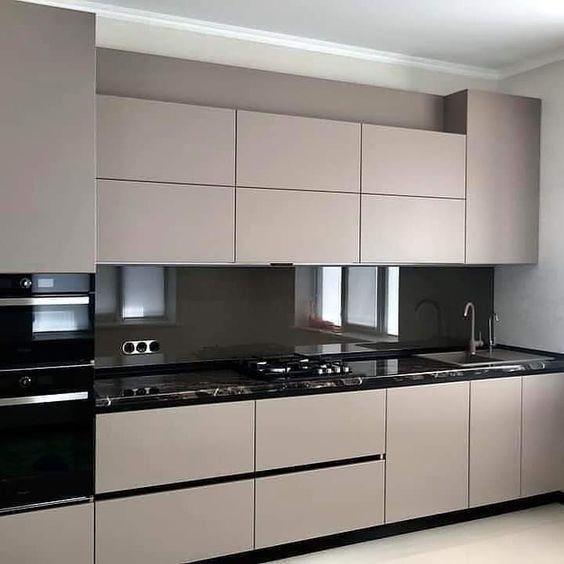

When it comes to designing a modern and efficient kitchen, the choice of materials plays a pivotal role. Modular kitchens, known for their versatility and functionality, rely heavily on the selection of materials to achieve the desired aesthetic and practicality. In this blog, we’ll delve into the essential materials used in modular kitchens and their impact on the overall design.
Cabinets are the workhorses of any kitchen, and in modular kitchens, they are typically crafted from a variety of materials. The common choices include:
Plywood: Known for its durability and strength, plywood cabinets are a popular choice. They are resistant to moisture and offer a smooth finish, making them ideal for kitchen use.
MDF (Medium-Density Fiberboard): MDF cabinets are cost-effective and versatile. They can be easily painted or laminated to achieve different finishes and styles.
Particleboard: These cabinets are budget-friendly but may not be as durable as plywood or MDF. They are often used for less critical components like the back panels.
Countertops are not only a visual focal point in a kitchen but also a functional workspace. The choice of countertop material can greatly influence the kitchen’s look and functionality:
Granite: Renowned for its natural beauty and durability, granite is a top choice. It’s heat and scratch-resistant, making it ideal for a busy kitchen.
Quartz: Engineered quartz countertops offer the look of natural stone with enhanced durability. They are non-porous, making them resistant to stains and easy to clean.
Laminate: Laminate countertops are budget-friendly and come in a wide range of colors and patterns. They are easy to maintain but can be less resistant to heat and scratches.
The backsplash not only protects the walls from spills and splatters but also adds a decorative touch. Common materials for backsplashes include:
Tiles: Ceramic and porcelain tiles are popular choices due to their versatility. They come in various colors, patterns, and sizes, allowing for creative designs.
Glass: Glass backsplashes are sleek and easy to clean. They are available in a variety of colors and can create a contemporary look.
Kitchen flooring needs to be sturdy, easy to clean, and resistant to moisture. Common kitchen flooring materials include:
Ceramic Tiles: These are durable and come in various styles. They are water-resistant and easy to clean.
Vinyl: Vinyl flooring is affordable, resilient, and available in a wide range of designs, including wood and stone patterns.
The hardware in a modular kitchen, such as handles, knobs, and hinges, may seem minor but can significantly impact the overall look and functionality. Materials like stainless steel, brass, or nickel are often chosen for their durability and aesthetic appeal.
Choosing the Right Materials
Selecting the right materials for your modular kitchen depends on your budget, style preferences, and practical needs. It’s essential to strike a balance between aesthetics and functionality while considering factors like durability, maintenance, and sustainability.
In conclusion, the materials used in modular kitchens are the building blocks of a well-designed and efficient space. By understanding the options available and their characteristics, you can make informed choices to create a kitchen that not only looks beautiful but also stands the test of time. Whether you opt for the timeless elegance of granite or the modern versatility of laminate, the right materials can transform your kitchen into the heart of your home.
